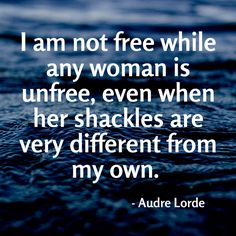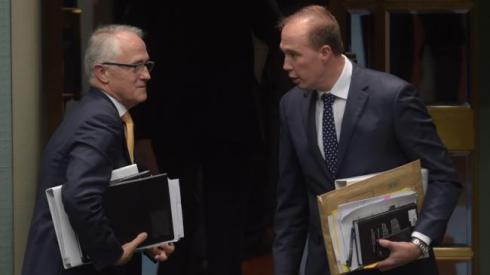November 25th is the International Day of Elimination of Violence against Women, known as White Ribbon Day after the organisation that works to prevent male violence against women, an organisation led by men with the aim of supporting women, and calling violent men on their behaviours as well as assisting them with change. Men are required to take an oath that they will protest violence against women, and the wearing of a white ribbon signifies that they’ve taken that oath.
FACT: Destroy the Joint’s Counting Dead Women Project keeps a record of the names, lives and circumstances of all women in Australia who have died in incidents of violence against women in 2015. The total so far: seventy-eight.
FACT: Every three hours, somewhere in Australia, a woman is hospitalised because of injuries inflicted on her by her intimate partner. These partners are overwhelmingly male.
FACT: Every week, three women injured by an intimate partner in Australia suffer a debilitating brain injury.
FACT: Prime Minister Malcolm Turnbull announced a $101.1 million Women’s Safety Package designed to prevent and eliminate violence against women. This went some small way to replacing the $300 million in cuts inflicted on the frontline domestic violence service sector by the previously Abbott-led government.
This sector provides refuges, support and trauma counselling for women and children fleeing violence, and community legal centres where woman can obtain assistance with intervention orders, and the legal processes involved in obtaining protection from violent partners. Then Minister for Women Tony Abbott’s cuts seriously crippled the ability of these already overstretched services to cope with the increasing numbers of women and children attempting to escape violent domestic situations.
In spite of the White Ribbon Day hoo haa (which included, bafflingly, a fighter jet fly past over Canberra because nothing says let’s end violence like fighter jets) the Turnbull government has done practically nothing to restore frontline crisis services that will help save women’s lives, and help prevent injuries to women and children by actually giving them somewhere to go when a violent man violently erupts in their homes, and they have no choice but to flee.
While education, the raising of awareness, the provision of special phones, alarms and all the other measures the $101.1 million will fund are absolutely necessary, there is nothing, absolutely nothing as urgently vital as actually giving women and children somewhere to go in that terrible moment when they have to get out of their home. Yet this life-threatening urgency appears to be beyond the imaginative comprehension of politicians, both federal and state.
FACT: In NSW there used to be seventy-eight women’s refuges. Since the reforms of the LNP Baird government, some of which were necessitated by the federal funding cuts to states, there are now only fourteen specialist women’s refuges, the rest having been converted to “generalist” refuges under the umbrella of “homelessness.” This means women and children fleeing domestic violence can find themselves sharing a refuge with homeless men. It means that previously women-only refuges now must agree to accept homeless men in order to keep their funding.
FACT: Since the Baird reforms only half of the refuges in NSW have 24/7 contact and accessibility facilities, so make sure you get bashed between nine and five. If you go to the police in a crisis outside of these hours, there is nowhere for the police to take you.This does not help the police, apart from anything else.
After tweeting relentlessly on White Ribbon Day about the destructive “reform” of categorising those fleeing domestic violence as “homeless” (they aren’t: they have a home, they just can’t stay in it because of a violent co-habitant) I was contacted by Brad Hazzard, NSW Minister for Family and Community Services and Social Housing, who referred me to his media release on the topic.
This release tells me nothing I don’t already know about the Baird “reforms.” These “reforms” have led to many highly experienced refuge workers finding themselves ousted by faith-based organisation such as the Salvation Army, who, when the tendering process for DV funding was changed to the provision of “homelessness” services, were experienced in that field as specialist DV and trauma workers are not, and so neatly fitted the tendering criteria.
In case you don’t know and I didn’t, there are criteria for tendering so apparently it’s necessary to tender for the right to tender.
A study commissioned by the World Bank and published in the American Political Science Review — conducted over four decades and in 70 countries — details the context of violence against women. Its core finding: the mobilization of local grassroots feminist movements is more important for positive change than the wealth of nations, left-wing political parties, or the number of women politicians.
Local grassroots feminist movements first introduced women’s refugees in this country. Local grassroots feminist movements developed a model for the assistance and protection of women and children escaping violent men with whom they shared their homes. Decades of training, experience and specialist knowledge informed the provision of frontline specialist crisis services by feminists and others who followed the feminist model. The model has its faults, as do all models. But it unfailingly prioritised the needs and rights of women and children fleeing violence.
There was never enough funding. There were never enough refuges. There were never enough adequately funded community legal centres.
After White Ribbon Day 2015, the situation for women and children fleeing domestic violence is more parlous and tenuous than it has been for decades. At the same time, there are more and more women attempting to flee violent situations, only to find fewer and fewer services able to assist them.
To Prime Minister Turnbull, to NSW Premier Mike Baird, to the White Ribbon organisation and all it supporters: look at the facts, and put your money where your oath is. Because as long as you wear that white ribbon AND refuse us the crisis services we so desperately need to save us from injury and death, you have no credibility at all.
What will it take for politicians to grasp the urgency of the situation? Turnbull and many others have articulated what it will take: a cultural change.
That cultural change begins with acknowledging that all women and all children share equal rights to a safe environment, and when that is not our own home due to male violence against us in that home, it is a government’s absolute responsibility to provide an option, until such time as we are enabled to provide our own.
If the law can be changed overnight when a handful of men are king hit on a public street, yet women’s crisis services are not available and adequately funded, despite the appalling statistics that tell us of the intolerable violence visited upon us, this tells me everything about this culture and how it does not equally value me, and it does not equally value everyone else of my sex. It tells me that there is not the political will to change the culture, and therefore it is unlikely to be changed.
Change the culture: Put your money where your oath is. Then you can wear your white ribbon, knowing that every night and every tomorrow, somewhere in Australia a woman will escape injury and death, and a child will escape injury and death because they have somewhere to go, and all the assistance they need to begin a new life in which they can be safe. Then you will send the signal to all men that violence against women will not be tolerated.
If you can’t do that you will not even begin to achieve cultural change, and your shiny white ribbon will be forever stained with our spilled blood.
It’s not complicated.

















































Recent Comments